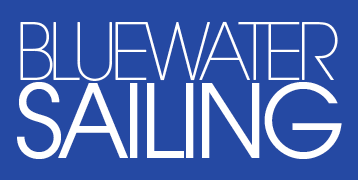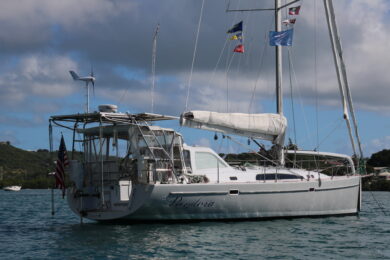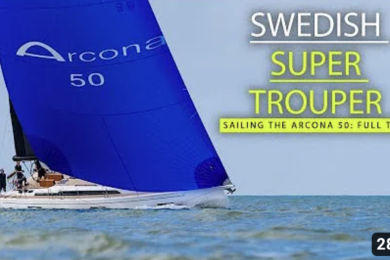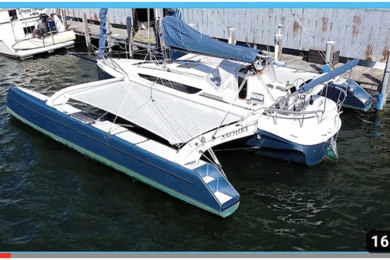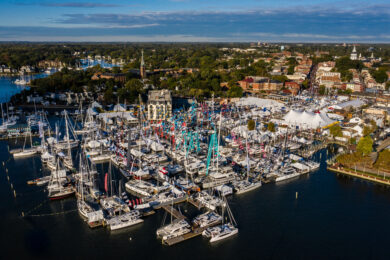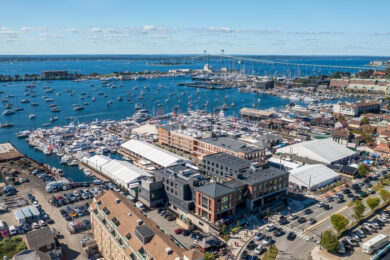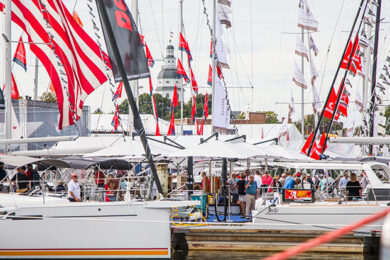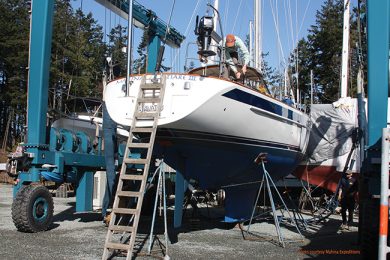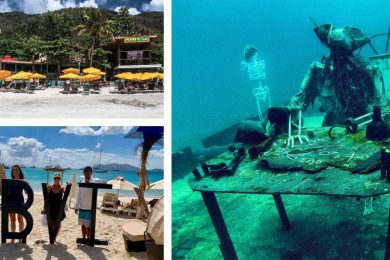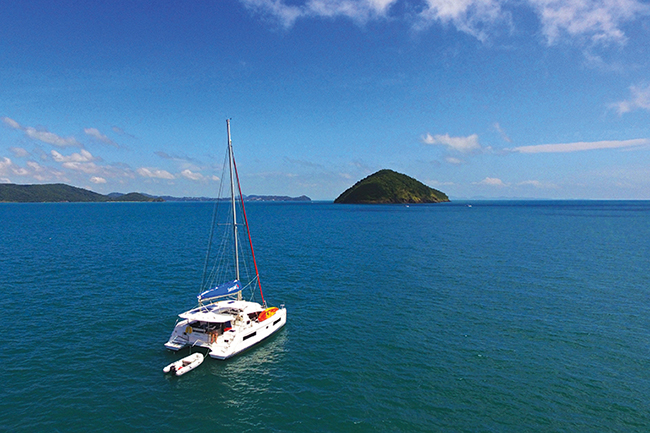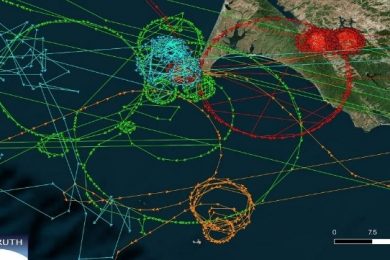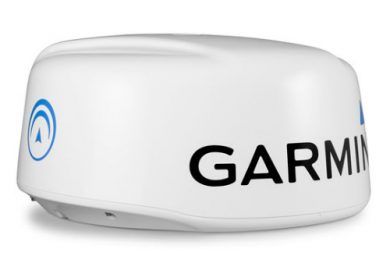 The EPIRB once again proved its worth. Seven French sailors whose catamaran capsized off the west coast of Scotland were rescued after an emergency beacon alerted the coastguard to their plight. The suddenness of the capsize meant that the crew did not have time to manually activate beacons.
The EPIRB once again proved its worth. Seven French sailors whose catamaran capsized off the west coast of Scotland were rescued after an emergency beacon alerted the coastguard to their plight. The suddenness of the capsize meant that the crew did not have time to manually activate beacons.
Mallaig Lifeboat coxswain Michael Ian Currie said the fate of the catamaran crew would be unknown if it wasn’t for “the Godsend” of the beacon.
He said, “They would have spent the whole night sitting on the hull until someone spotted them. The two women on board were already cold by the time we arrived, so we don’t want to think about what could have happened.”
The catamaran capsized north of Mallaig, two miles from the Glenelg Peninsula, after being hit by a sudden squall this week.
They were initially trapped inside the 52ft boat, but managed to escape and sit on the upturned twin-hull.
Such was the suddenness of the accident, that the sailors did not have time to send a radio mayday message or release a distress flare.
Stornoway Coastguard was alerted by the activation of the emergency position-indicating radio beacon – or EPIRB – which sends a signal upon striking the sea.
Coxswain Currie said, “It was a Godsend the EPIRB activated. That was their sole means of communicating their distress.”
“We got paged at around 9:30pm and located the upturned vessel about four miles north of the station. There were no other vessels in the area, as most are anchored up at that time, so they would have spent the night there.”
“We found the capsized catamaran with seven souls standing on the two hills. It was a relief that they were all accounted for.”
“We launched our dinghy and got them on board. The two women were starting to feel the effects of the cold, but were fine.”
“We get a few false alarms with EPIRBS, but on this occasion it did its job.”
Courtesy of www.sail-world.com
